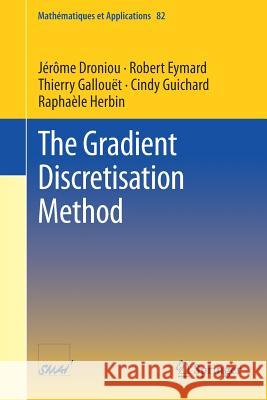The Gradient Discretisation Method » książka
topmenu
The Gradient Discretisation Method
ISBN-13: 9783319790411 / Angielski / Miękka / 2018 / 497 str.
Kategorie:
Kategorie BISAC:
Wydawca:
Springer
Seria wydawnicza:
Język:
Angielski
ISBN-13:
9783319790411
Rok wydania:
2018
Wydanie:
2018
Ilość stron:
497
Waga:
0.72 kg
Wymiary:
23.39 x 15.6 x 2.67
Oprawa:
Miękka
Wolumenów:
01
Dodatkowe informacje:
Wydanie ilustrowane











